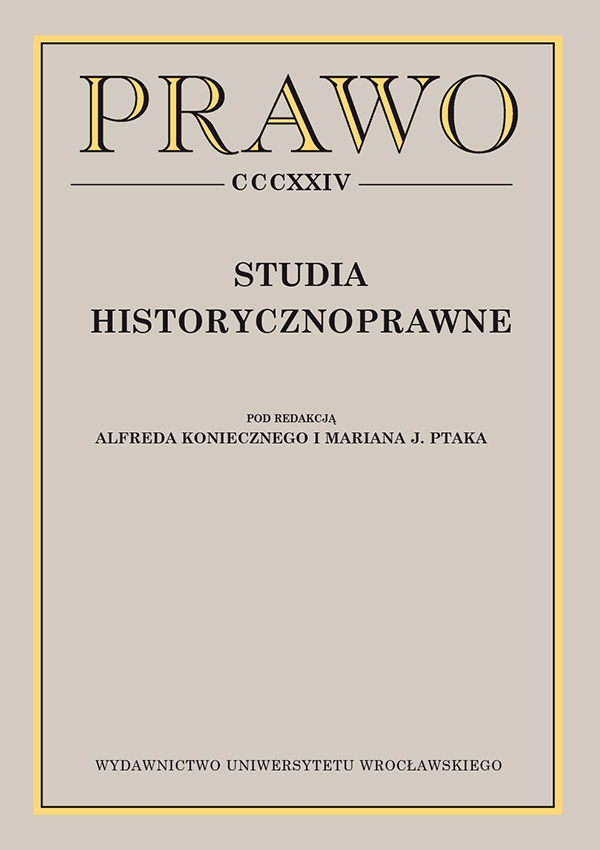

Artykuły

Law schools as an example of the “democratisation” of the justice system in the early days of the People’s Republic of Poland
The paper is devoted to the Ministry of Justice’s law schools. The author presents the origins of the institutions as well as the special nature of the decree of 1946 on exceptional admissions to the office of judge, prosecutor and notary, and entry into the list of barristers and solicitors under the Court System Law of 1928. He discusses the functioning of law schools and their curricula. He demonstrates that the introduction of a special system of appointments to various offices in the justice system in the early days of the People’s Republic of Poland stemmed from a lack of trust on the part of the new authorities in prosecutors and judges of the Second Polish Republic. Consequently, using staff shortages caused by the war and occupation as an excuse, the government decided to try to gain decisive influence on the justice system by appointing graduates of the law schools as judges and prosecutors, in return expecting loyalty to the new political authorities.
Die Rechtsschulen als Beispiel der „Demokratisierung“ der Rechtspflege am Anfang der Volksrepublik Polen
Die Bearbeitung wurde den Rechtsschulen des Justizministeriums gewidmet. Präsentiert wurde die Genese der Institution und der besondere Charakter des Dekretes von 1946 über die Sonderzulassung zur Übernahme der Posten als Richter, Staatsanwalt und Notar und zur Eintragung in die Liste der Rechtsanwälte vor dem Hintergrund des Rechts über das System der ordentlichen Gerichte aus dem Jahre 1928. Besprochen wurden die Tätigkeit der Rechtsschulen und ihre Lehrprogramme. Es wurde bewiesen, dass der Sondermodus der Berufung in die Posten im Justizwesen in den Anfängen der Volksrepublik Polen sich aus dem fehlenden Vertrauen der neuen Macht zu den Staatsanwälten und Richtern der Zweiten Polnischen Republik ergab. Infolgedessen, unter dem Vorwand, den Kadermangel zu beseitigen, der durch den Krieg und die Besatzungszeit verursacht wurde, wurde versucht, entscheidenden Einfluss auf die personelle Besetzung der Postem im Justizwesen zu nehmen, indem die richterlichen und staatsanwaltlichen Posten mit Absolventen der Rechtsschulen besetzt wurden. Als Gegendienst erwartete man von ihnen die Loyalität der neuen Macht gegenüber.